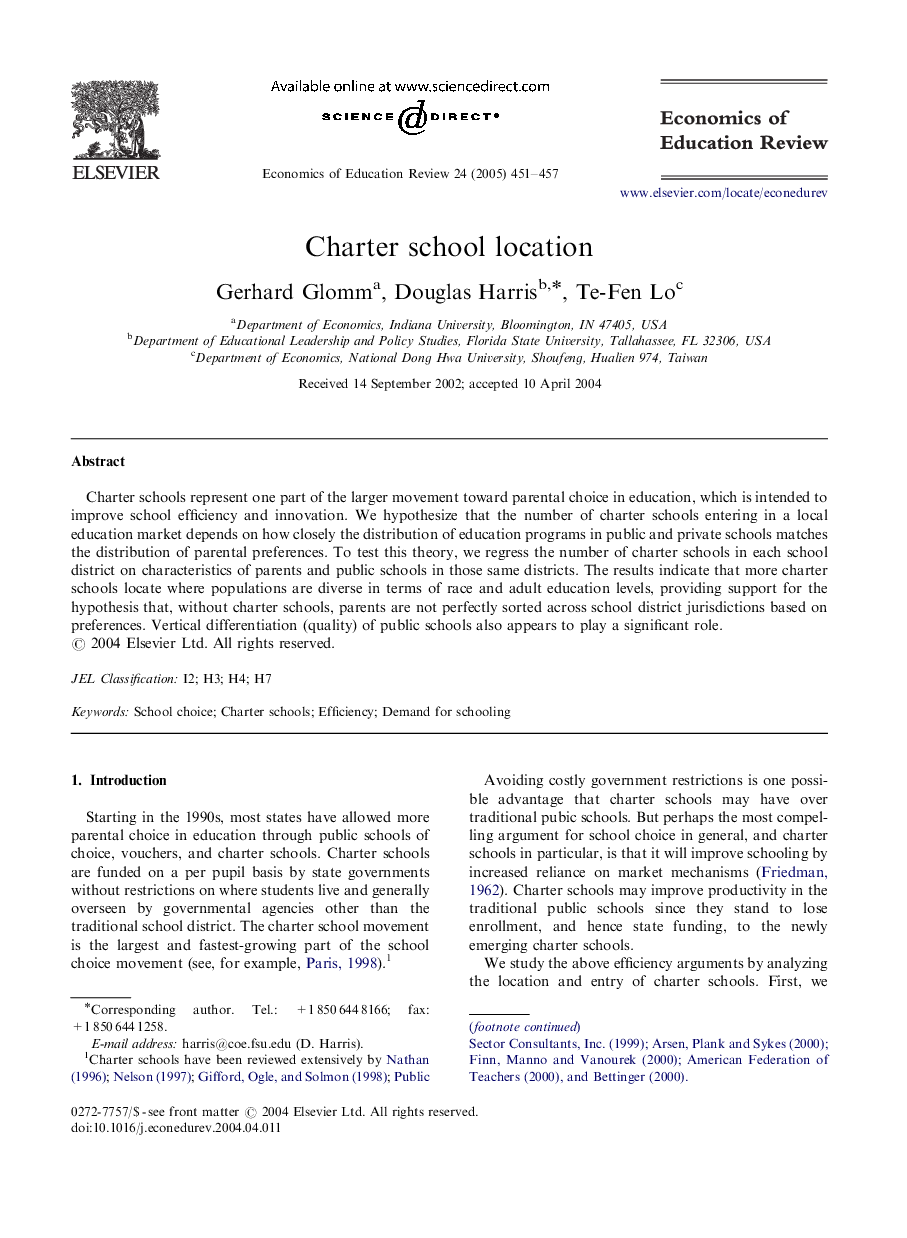| Article ID | Journal | Published Year | Pages | File Type |
|---|---|---|---|---|
| 9647727 | Economics of Education Review | 2005 | 7 Pages |
Abstract
Charter schools represent one part of the larger movement toward parental choice in education, which is intended to improve school efficiency and innovation. We hypothesize that the number of charter schools entering in a local education market depends on how closely the distribution of education programs in public and private schools matches the distribution of parental preferences. To test this theory, we regress the number of charter schools in each school district on characteristics of parents and public schools in those same districts. The results indicate that more charter schools locate where populations are diverse in terms of race and adult education levels, providing support for the hypothesis that, without charter schools, parents are not perfectly sorted across school district jurisdictions based on preferences. Vertical differentiation (quality) of public schools also appears to play a significant role.
Related Topics
Social Sciences and Humanities
Economics, Econometrics and Finance
Economics and Econometrics
Authors
Gerhard Glomm, Douglas Harris, Te-Fen Lo,
